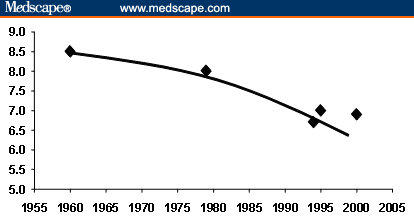In these days when the dark clouds of the Corona virus hovers over all mankind and all we hear is sad and pessimistic news about the Pandemic, here is some good news.
I am about to give you some tips for a good, healthy and long life. These interventions cost you nothing but will help you lead a disease-free life. This is the first of a three-part simple program to lead a long yet healthy life. In short not to have the old age problems that make old age difficult.
Why do we age? Mainly because of DNA damage caused by endogenous and exogenous epigenetic insults.

In addition, some other very important contributing factors to aging and disease are insulin resistance and free radical or ROS production.
Insulin resistance – the phenomenon wherein cells do not utilize glucose optimally giving rise to higher insulin levels or hyperinsulinemia. This consequently leads to inflammation and contributes to lifestyle disorders.


The three mantras that can overcome these problems associated with ‘modern’ life are
- Sleep,
- Exercise, and
- Intermittent fasting
In the first part we will look at how sleep is one of the important protectors to promote a healthy life. Man is the only living being who purposefully ‘cheats’ on his sleep. Yet, those who sleep less and work long hours are held up as role models and beacons of ‘successful’ living. More work and less sleep marks a good, ‘cool’ person in this modern era.

How much has sleep been reduced by in the modern era?
From 8.5 hours night sleep in 1960 to 6.5-7 hours in the modern era.

So how much sleep do we need? An adult needs 8 hours on an average and there is nothing like ‘catch-up’ sleep. You cannot sleep for 4-5 hours on Friday and Saturday nights and make it up on Sunday!

Our sleep – wake cycle is called the circadian rhythm. So, what happens at different times of the day?
The entire gamut of bodily functions changes according to the time of the day.

Also, the sleep – wake cycle has different effects on the body metabolism

A study published May 21, 2018, in the Proceedings of the National Academy of Sciences (PNAS) showed that staying awake at night and sleeping during the day for even just one 24-hour period can rapidly lead to changes in more than 100 proteins in the blood, including ones that have an effect on blood sugar, immune function, and metabolism. Over time, these biochemical changes in blood protein levels can elevate your risk for health issues such as diabetes, weight gain, and even cancer .
The modern era of bright lights, electronic devices like television, smart phones have led to a drastic lowering of the average sleep period from 8 hours to 6 hours and even less.
How does blue light affect your sleep?

Also, shift duties and night shift work in call centers, airports etc. are playing havoc with people’s health. WHO has warned that shift workers have a higher risk of cancer!!
Melatonin and sleep

In humans, the circadian rhythm of melatonin release from the pineal gland is highly synchronized with the habitual hours of sleep, and the daily onset of melatonin secretion is well correlated with the onset of the steepest increase in nocturnal sleepiness (‘sleep gate’).While melatonin decreases sleep onset latency, increases sleep efficiency, and increases total sleep duration its use as a medication or supplement may not be very efficacious.
A short summary of the various components of sleep and the effect of sleep on the various steps and mechanisms of the diverse components of human memory follows:
(A) The human sleep cycle—across the night, NREM (Non-rapid eye movement) and REM (rapid eye movement) sleep cycle every 90 min in an ultradian (rhythmic oscillation) manner, while the ratio of NREM to REM sleep shifts. During the first half of the night, stages 3 and 4 NREM (SWS) dominate, while stage 2 NREM and REM sleep prevail in the latter half of the night. EEG patterns also differ significantly between sleep stages, with electrical oscillations such as K complexes and sleep spindles occurring during stage 2 NREM, slow (0.5–4Hz) delta waves developing in SWS, and theta waves seen during REM.
(B) Memory systems—human memory is most commonly divided into declarative forms, with further subdivisions into episodic and semantic; and nondeclarative forms, subdivided into an array of different types including procedural skill memory
(C) Developing stages of memory—following the initial encoding of a memory, several ensuing stages are proposed, beginning with consolidation, as well as integration of the memory representation, translocation of the representation, or erasure of the memory. Also, following later recall, the memory representation is believed to become unstable once again, requiring periods of reconsolidation.

Learning, memory and sleep
Memory – poor – sleep is required both before and after learning – 40% deficit in new learning was found in recent trial.
Also, sleep is essential for transfer from short-term to long term memory.
Like adults, sleep benefits memory and (language) learning in infants, both before and after learning. Better parental-reported infant night sleep is directly proportional to better executive functioning. In fact, hippocampus atrophy has been reported in chronic insomniacs. The hippocampus It is an important part of the limbic system in the brain that regulates motivation, emotion, learning, and memory
Why do we sleep and why is it so important to our health and life?
Sleep affects almost every aspect of our well-being and less sleep can lead to the following:
- Physical growth – increase in weight – 50% higher risk of obesity with <5 hours sleep. In adolescents there sems to be an association between later bedtime and an increase in BMI. Sleep is related significantly to physical growth as early as in the first months of life. There is increasing evidence from recent studies demonstrating a link between short sleep duration and weight gain and obesity in young children. This could be due to increased caloric intake – in one study the average intake was 50 calories. Some studies found a higher BMI and shorter growth in infants with less than 12 hours sleep. Stunting was associated with a shorter night sleep duration, higher frequency of night waking, and shorter nap duration. There is a decrease in leptin and an increase in ghrelin in sleep deprivation.
- Suggested mechanisms that link shorter sleep or sleep restriction to weight gain, obesity, and insulin resistance include counter-regulatory hormones such as cortisol and growth hormone, altered activity of the autonomous nervous system, and the alteration of appetite-regulating hormones like leptin and ghrelin which increases appetite and hunger.
- More craving for sweet, salty and starchy foods – accompanied by higher ghrelin (the hormone that increases hunger) and lower leptin (the hormone that increases satiety).
- Hormonal – increased insulin resistance (IR) and higher risk of Type2 diabetes mellitus is seen. Smaller size of testicles and ovaries and low sex hormone levels are seen falling almost to levels found in those a decade older. Increases thyroid stimulating hormone (TSH) which causes an under-active thyroid and slower metabolism.
A bidirectional interaction between hormones and sleep can be seen. Several hormones are both involved in maintenance of circadian rhythm and sleep and affected by the quantity and quality of sleep. Those hormones include, for example, melatonin, cortisol, leptin, ghrelin, insulin-like growth factor-1, prolactin, and growth hormone
- Immunity – lowered by 40% more likely to get cold, cough etc. A well-planned study showed that when sleep deprived people are given a vaccine, there is a lower antibody response and if you expose sleep deprived people to a rhinovirus, they are more likely to get the virus. The active immune system is energy-dependent, and changes in hormone levels during sleep enable your body to take extra energy from the muscles and utilize it for building up and maintaining a healthy immune system. A lack of sleep not only causes the immune system to go awry and makes you more susceptible to viral and bacterial infections, it also leads to the breakdown of immune self-tolerance which triggers autoimmune diseases.
- More depression, anxiety, irritability and confusion
- Brain growth – decreased neurogenesis resulting in 3-5 years aging of brain. Sleep deprivation is also to deficient myelination of axons.
- Repair – autophagy is lowered with less sleep. Autophagy is the process by which recycling is accomplished of old and damaged cell parts. Toxic waste built over the working day is flushed out during sleep only.
- Less efficient housekeeping – normally during sleep the spaces between brain cells widen and Ca and Mg is flushed out. Also, amyloidβ is cleared. Amyloidβ is the protein which is deposited in excess in Alzheimer’s.
- Anti-cancer effect – 70% less killer cell activity (ones that kill pre-cancerous cells) increased risk in several types of cancer – 36% colorectal, prostate and breast cancer.
- DNA damage – 6 hours’ sleep for just 1 week resulted in 711 genes being distorted. DNA damage is often the starting point of cancers and neurodegenerative disorders.
- Impaired cardiovascular health (48% higher risk of IHD) and increased risk of high blood pressure
- Decrease in muscular reaction time and accuracy – thousands of fatal car crashes due to sleep deprivation
- Observation in 1.6 billion from 20 countries world-wide – just one hour less sleep due to daylight saving causes a 24% increase in IHD and car crashes and suicides. One hour more sleep on normal daylight timing effect has opposite effect, a 21% reduction in IHD and less suicides and car crashes
Sleep restriction and the metabolic havoc it plays in your brain.

TIPS TO GET GOOD SLEEP
- Regular timing of sleep and waking – improves both quantity and quality of sleep.
- Avoid naps
- No alcohol or caffeine after 3 pm.
- Avoid heavy meals 2 hours before bedtime
- Refrain from using electronic devices just before bedtime
- Exercise regularly but not just before bedtime
- An hour before bedtime do relaxing activities like reading, listening to soft music, meditating or taking a bath.
- Keep the room cool
Now you are on your first step towards a better and healthier life.

